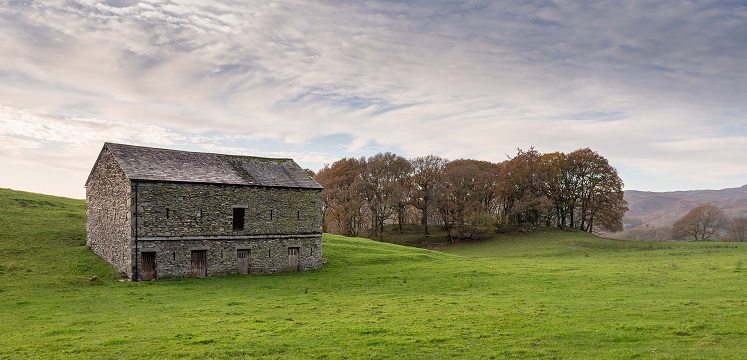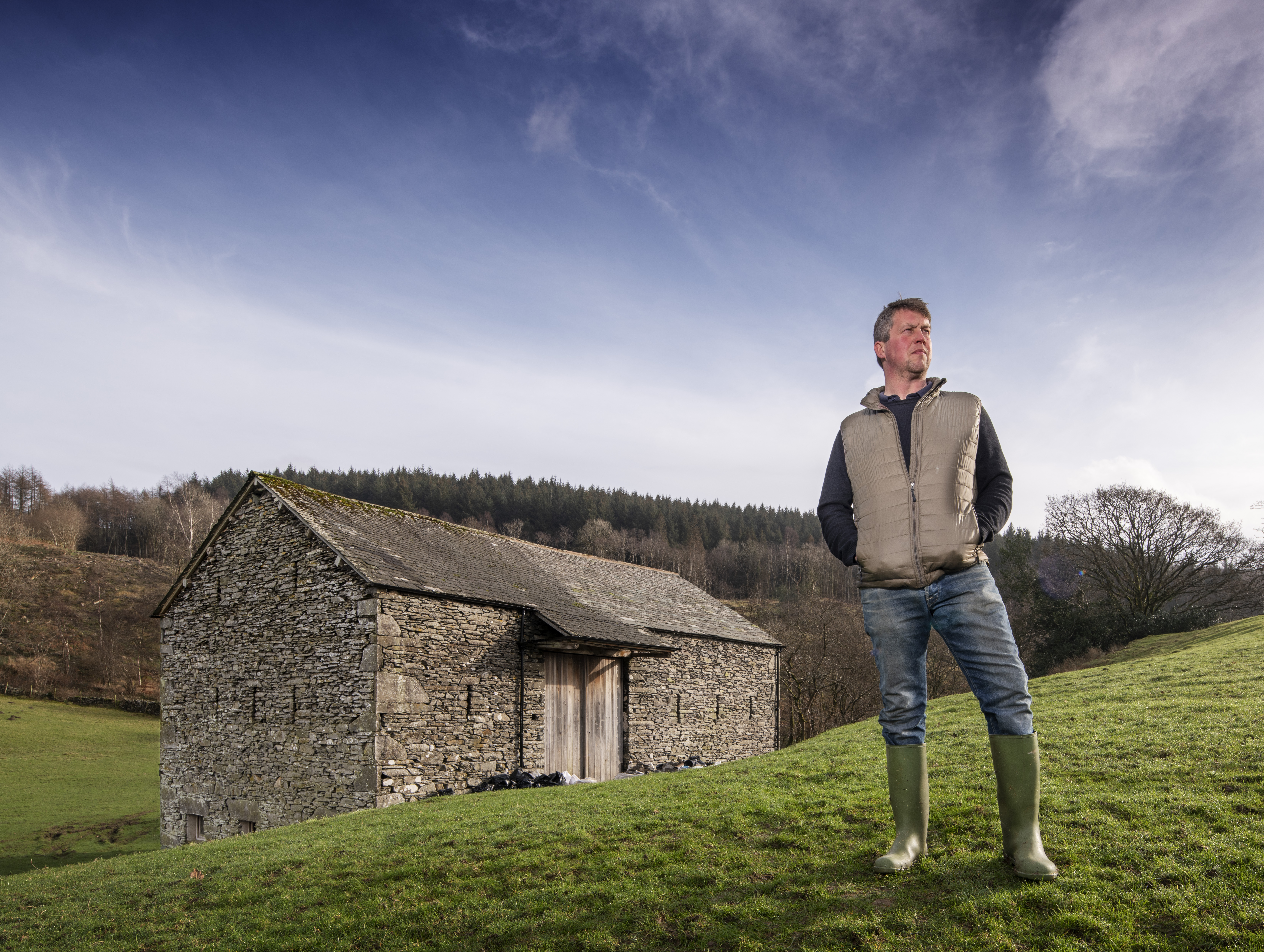
The £8 million Historic Building Restoration Grant Pilot is a collaborative project between Natural England, Historic England, Rural Payments Agency and five National Parks (Dartmoor, Lake District, Northumberland, Peak District and Yorkshire Dales).
The aim of the Pilot is to bring life back to traditional agricultural buildings, within the participating National Park boundaries, by restoring them for continued agricultural use, using traditional methods and materials, resulting in an enhancement of the landscape for public enjoyment and habitat for wildlife.
Working in partnership with local farmers and building owners, we will ensure that we can conserve iconic buildings and support their continued agricultural use in the Lake District. Repairing exisiting buildings uses less energy and materials than building new ones, so building repair is an important part of our Low Carbon Lake District project.
Traditional farm buildings are an integral part of our working landscape and this scheme recognises the significant heritage value that these buildings have for Lake District communities and which are also so very important for our World Heritage Site status.
A Bank Barn in Longsleddale was amongst the first in the country to benefit from a pilot grant to sensitively repair the building for continued agricultural use and to preserve the appearance of the surrounding cultural landscape.
The Grade II listed traditional bank barn dates back to 1741 and had been on the Lake District National Park’s ‘buildings at risk’ register since 2010. The barn has undergone specialist conservation work including repairs to the roof, walls and internal joinery, with new rainwater goods added to help protect the building from the worse of the Cumbrian weather.
This grant scheme has provided the National Park and barn owner Andrew Sutton with the ideal opportunity to have the building sensitively repaired and brought back into use as part of the farm holding as additional stock housing and hay storage.
The project involved conservation accredited architects, Countyside Consultants based in Alston and experienced building contractors T A Law from Ravenstonedale. There are nine other buildings in the pilot from the Lake District National Park and as the scheme is a pilot, it is now closed to new applicants.

Built in the mid-19th century, Arklid is a traditional and impressive bank barn with hayloft and threshing floor above, accessed from large double doors in the west wall, and with stalls for cattle accommodation below. It is an atypical bank barn, sitting on its own, far away from the farmstead making it something of a local landmark.
Arklid Barn was at serious risk of further collapse and without this grant scheme repair might not have been viable. The grant aided work included the rebuilding of a partially collapsed wall, re-roofing part of the building and repairing, not replacing, external doors and windows.
Most of the work was completed during the winter months, which ensured that the resident owl pair were not disturbed and they have successfully reared young once again in the repaired barn. These barns are highly valued by farmers, local residents and visitors, so to be able to support their sensitive repair by local builders with a passion for their craft has wider public benefits than just the benefit to the individual owners.
Many isolated barns are potentially at risk as farming practices change, yet through this scheme we are proving that they can be repaired to benefit wildlife, the historic landscape and be enjoyed by locals and visitors alike. Although this pilot grant scheme has closed for new applicants if you have a project you wish to discuss please contact us using our Farming in Protected Landscapes enquiry form.